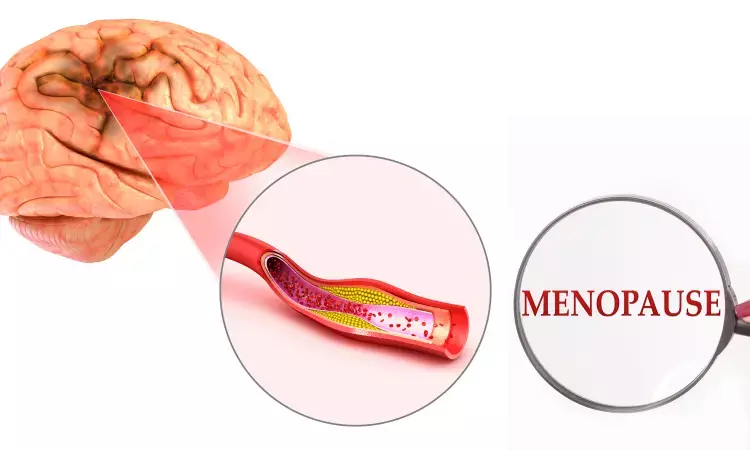- Home
- Medical news & Guidelines
- Anesthesiology
- Cardiology and CTVS
- Critical Care
- Dentistry
- Dermatology
- Diabetes and Endocrinology
- ENT
- Gastroenterology
- Medicine
- Nephrology
- Neurology
- Obstretics-Gynaecology
- Oncology
- Ophthalmology
- Orthopaedics
- Pediatrics-Neonatology
- Psychiatry
- Pulmonology
- Radiology
- Surgery
- Urology
- Laboratory Medicine
- Diet
- Nursing
- Paramedical
- Physiotherapy
- Health news
- Fact Check
- Bone Health Fact Check
- Brain Health Fact Check
- Cancer Related Fact Check
- Child Care Fact Check
- Dental and oral health fact check
- Diabetes and metabolic health fact check
- Diet and Nutrition Fact Check
- Eye and ENT Care Fact Check
- Fitness fact check
- Gut health fact check
- Heart health fact check
- Kidney health fact check
- Medical education fact check
- Men's health fact check
- Respiratory fact check
- Skin and hair care fact check
- Vaccine and Immunization fact check
- Women's health fact check
- AYUSH
- State News
- Andaman and Nicobar Islands
- Andhra Pradesh
- Arunachal Pradesh
- Assam
- Bihar
- Chandigarh
- Chattisgarh
- Dadra and Nagar Haveli
- Daman and Diu
- Delhi
- Goa
- Gujarat
- Haryana
- Himachal Pradesh
- Jammu & Kashmir
- Jharkhand
- Karnataka
- Kerala
- Ladakh
- Lakshadweep
- Madhya Pradesh
- Maharashtra
- Manipur
- Meghalaya
- Mizoram
- Nagaland
- Odisha
- Puducherry
- Punjab
- Rajasthan
- Sikkim
- Tamil Nadu
- Telangana
- Tripura
- Uttar Pradesh
- Uttrakhand
- West Bengal
- Medical Education
- Industry
Lifetime estrogen exposure linked to Risk of Stroke after menopause

China: A study published in Neurology has concluded that a woman's cumulative exposure to estrogen remains protective against stroke after menopause. The researchers have highlighted that lifetime cumulative estrogen exposure due to reproductive factors acts as an early warning indicator for stroke and its subtypes.
It is already known that multiple reproductive factors are tied to stroke. However, there needs to be more data on the cumulative effects of reproductive factors on stroke and the subtypes among Chinese females during the reproductive life course.
Considering this background, researchers assessed the association between lifetime cumulative estrogen and stroke among postmenopausal Chinese women.
The study summary includes the following:
- From the CKB study (China Kadoorie Biobank), postmenopausal females were selected without prior history of stroke at baseline (2004-2008) with a total of 122,939 postmenopausal women aged 40 to 79 years.
- Three composite indicators were used to assess Lifetime cumulative estrogen exposure due to reproductive factors, namely reproductive lifespan (RLS), endogenous estrogen exposure (EEE), and total estrogen exposure (TEE).
- Stroke and its subtypes, namely ischemic stroke (IS), intracerebral hemorrhage (ICH) and subarachnoid hemorrhage (SAH), were identified (2004-2015).
- The median follow-up was 8.9 years.
- The researchers identified 15,139 new-onset stroke cases.
- There were 12,853 cases of ischemic stroke, 2,580 intracerebral hemorrhage and 269 cases of Subarachnoid haemorrhage.
- Compared with Q1 (lowest quartile) of Reproductive Life Span, the highest quartile (Q4) had a lower total stroke risk having aHR of 0.95.
- The adjusted HR for total estrogen exposure was 0.87
- The adjusted HR for Endogenous Estrogen Exposure was 0.85
To conclude, estrogen level decline during the postmenopausal period. Exposure to estrogen throughout life is a valuable indicator to determine the risk of stroke and its type after menopause.
Further reading:
Lifetime Cumulative Effect of Reproductive Factors on Stroke and Its Subtypes in Postmenopausal Chinese: A Prospective Cohort Study Leying Hou, Shuting Li, Siyu Zhu, Qian Yi, Wen Liu, You Wu, Feitong Wu, Yuelong Ji, Peige Song, Kazem Rahimi Neurology Feb 2023, 10.1212/WNL.0000000000206863; DOI: 10.1212/WNL.0000000000206863
BDS, MDS in Periodontics and Implantology
Dr. Aditi Yadav is a BDS, MDS in Periodontics and Implantology. She has a clinical experience of 5 years as a laser dental surgeon. She also has a Diploma in clinical research and pharmacovigilance and is a Certified data scientist. She is currently working as a content developer in e-health services. Dr. Yadav has a keen interest in Medical Journalism and is actively involved in Medical Research writing.
Dr Kamal Kant Kohli-MBBS, DTCD- a chest specialist with more than 30 years of practice and a flair for writing clinical articles, Dr Kamal Kant Kohli joined Medical Dialogues as a Chief Editor of Medical News. Besides writing articles, as an editor, he proofreads and verifies all the medical content published on Medical Dialogues including those coming from journals, studies,medical conferences,guidelines etc. Email: drkohli@medicaldialogues.in. Contact no. 011-43720751


